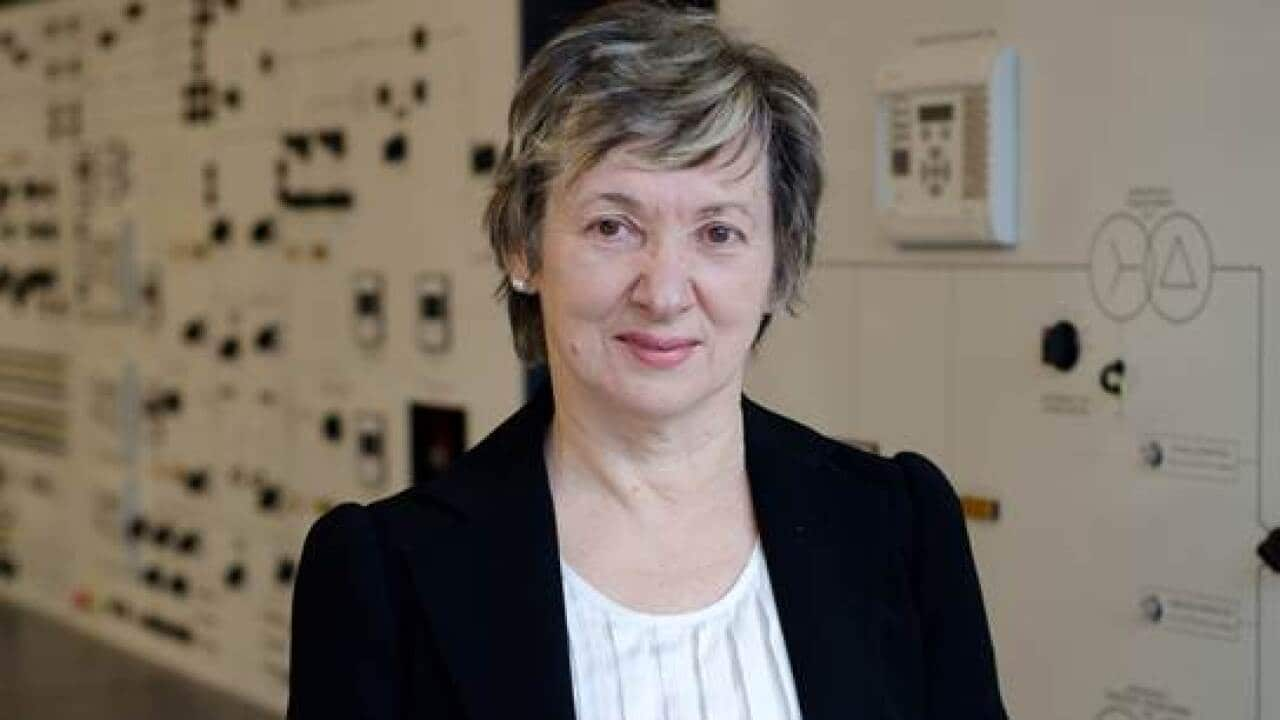The wireless technology that makes our smartphones and other devices so integral to our daily modern lives is the life’s work of Serbian-born Sydney researcher, Branka Vučetić. But she says, like many scientists that came before her, she never predicted exactly how fast that technology would change our lives.
As a Professor of Telecommunications at the University of Sydney and recent winner of CSIRO Eureka Prize for Leadership in Innovation and Science, Vučetić has been instrumental in the development of wireless communications from wifi to 6G phone networks.
Her career, however, started on the other side of the world. Born and raised in Serbia, she completed her studies at the Belgrade University before working in Adelaide, South Australia.
Her first project was working on satellite communication systems, a project she says opened her eyes to the incredible professional opportunities and experiences Australia could offer.
"I saw that Australia could give me professional support that wasn’t a possibility in Belgrade at the time," she tells SBS Serbian. “It was a chance to really develop my skills and overall research in the field.“
Professor Vučetić saw a similar work opportunity arise in Sydney, where she joined the ranks of post doctorate researchers at the University of Sydney. Not long after, she was on board as a permanent member of staff.
Her current work is focused on new wireless networks and forms of wireless connection that will enable technologies to further develop.
"Existing celluar networks experience delays," says Vučetić, "These networks are good enough for daily communication between people, or for access to the internet, but they aren’t good enough for new technologies on the market – communication between machines and robots."
She says since machine and robot reaction times are much faster than that of humans, very fast wireless networks will support the technologies of self-driving cars, renewable energy technologies, and even medical technologies that can support highly sophisticated robots.
The forward-looking professor says this is an industry that keeps everyone on their toes.
“In my industry, patents don’t last more than two years because the technologies change so rapidly. Compare this to the energy sector, and how much change they’ve experienced in last hundred years. Our energy systems are still hugely reliant on the foundations laid down by Nikola Tesla in the late 19th, early 20th century.
“Telecommunications, all information technology, changes so quickly. Every five to 10 years we have completely new networks. In Australia, we are currently working on the 5G or fifth generation network. Not too long ago, we’d just finished working on the first. 5G hasn’t been rolled out yet, but we are already starting work on 6G."
It is an industry that requires patience, curiosity, and a love for what you do, says Vučetić.
“If you don’t learn and adapt, in five years time your career is finished,“ says Vučetić,“ You have to be creative, you have to be curious. You have to accept challenges and adapt yourself to them... Science is about balancing all these qualities, a positive outlook on life but also pushing forward with education and research development."
Professor Vučetić is a keen advocate for STEM industries, and regularly speaks to high school and university students about the field. She says it is also vitally important to make sure women play a role in science, technology, engineering and mathematics industries, which are still dominated by men.
"When I came to Australia, I noticed that there was a huge gender discrepancy. The number of male students and professionals was much higher than the number of females. In Belgrade, the situation, as a result of the government regime of the time, wasn’t the same. We had relatively even numbers, in Australia I noticed a difference."
She says, however, that the situation is slowly getting better.
"I think Australia is at the level that Serbia was at the time, and slowly surpassing it... We are understanding now that development of a country, of an economy, is reliant on the inclusion of the whole population."
Professor Vučetić says that universities and organisations have worked hard to change the gender culture of Australia and encourage new perspectives in high school graduates.
"The numbers aren’t the same but they are better than the two per cent of female students, which was the number when I came to Sydney. Women need to realise that we are all, regardless of gender, equally talented and capable of understanding mathematics, science, and engineering. It would be shame to miss out on opportunities to change the world."
As for the CSIRO Eureka award, Professor Vučetić says that it was an honour for herself, and her whole team.
"The award is for leadership in Innovation and Science. It is a huge honour to be recognised, but it is an honour and an award I extend to my whole team, and to all my students over the years who have gone on to produce quality research and developments in our field."




